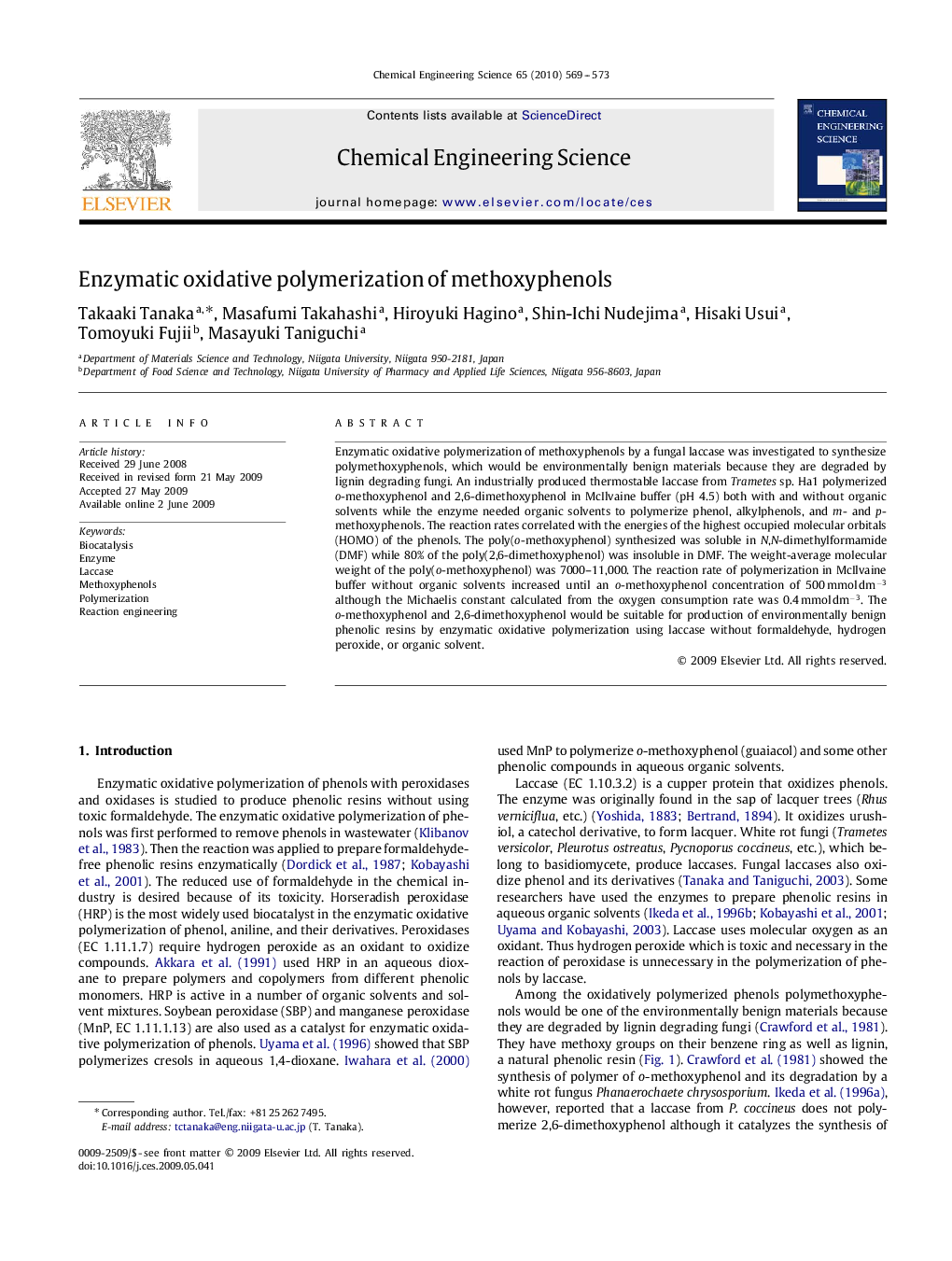| Article ID | Journal | Published Year | Pages | File Type |
|---|---|---|---|---|
| 157743 | Chemical Engineering Science | 2010 | 5 Pages |
Enzymatic oxidative polymerization of methoxyphenols by a fungal laccase was investigated to synthesize polymethoxyphenols, which would be environmentally benign materials because they are degraded by lignin degrading fungi. An industrially produced thermostable laccase from Trametes sp. Ha1 polymerized o-methoxyphenol and 2,6-dimethoxyphenol in McIlvaine buffer (pH 4.5) both with and without organic solvents while the enzyme needed organic solvents to polymerize phenol, alkylphenols, and m- and p-methoxyphenols. The reaction rates correlated with the energies of the highest occupied molecular orbitals (HOMO) of the phenols. The poly(o-methoxyphenol) synthesized was soluble in N,N-dimethylformamide (DMF) while 80% of the poly(2,6-dimethoxyphenol) was insoluble in DMF. The weight-average molecular weight of the poly(o-methoxyphenol) was 7000–11,000. The reaction rate of polymerization in McIlvaine buffer without organic solvents increased until an o-methoxyphenol concentration of 500 mmol dm−3 although the Michaelis constant calculated from the oxygen consumption rate was 0.4 mmol dm−3. The o-methoxyphenol and 2,6-dimethoxyphenol would be suitable for production of environmentally benign phenolic resins by enzymatic oxidative polymerization using laccase without formaldehyde, hydrogen peroxide, or organic solvent.
